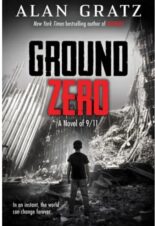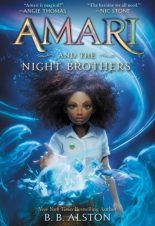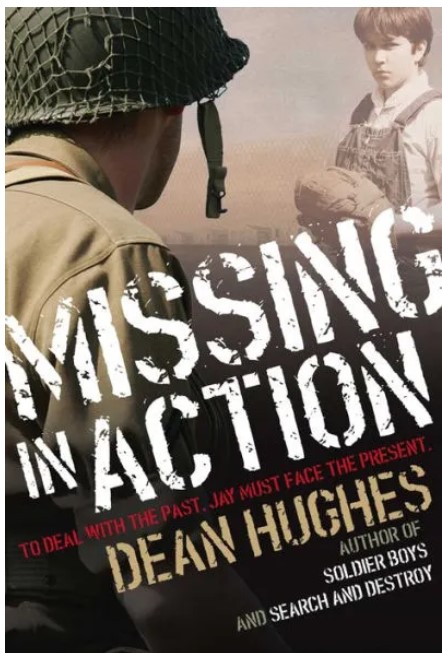
Buy This Book
“Everyone in the world wants me to be nobody, but I’m not listening. Those people on the street, they think I’m just a Jap, and that’s nobody, and my dad thinks I’m not Japanese, so that’s being nobody,” Jay. –Missing in Action
Missing in Action
by Dean Hughes
AR Test
10+
Score
3.9
256
Dirty. Lazy. Good-for-nothing.
Jay Thacker is used to being called names because his dad is half Navajo. But he gets a chance at a new life and a new identity when he and his mom move to the small town of Delta, Utah to live with Jay’s grandfather. In Delta, Jay can convince everyone, and maybe even himself, that his dad—who is missing in action as he fights in WWII—is really a POW and military hero, and not gone forever.
As the summer wears on and Jay finds himself growing up a little faster than he expected, he learns to look at some truths that had previously been impossible to face. Truths about his father; about Ken, his new friend from the Japanese internment camp nearby; and about himself, too.
Jay, a ten-year-old boy, is an interesting character; however, readers may struggle to connect with him. Jay believes that people will look down on him because he looks like his father, who is half Navajo. To make matters worse, Jay wrestles with conflicting emotions about his abusive father. Jay pretends that his father is a war hero, but this doesn’t stop bad memories from invading his thoughts. Jay also refuses to believe his father is dead, even though there is no way his father could have survived the bombing of his ship. In the end, Jay accepts his father’s death but he never deals with the negative emotions associated with his father.
Jay feels self-conscious because he looks like an Indian, and this affects how he interacts with others, especially Ken, a teen farmworker who lives in the Japanese Internment Camp. At first, Jay tries to keep his distance from Ken, but Ken’s humor and honesty make it difficult for Jay to dislike him. When others are around, Jay tries to pretend that he doesn’t know Ken. Jay thinks, “Gordy [his friend] didn’t seem to care if he was part Indian, but what would he say if he found out he worked with a Jap? Then he’d probably be a dirty Indian, not a Chief.”
Because Jay struggles with accepting himself, he often makes decisions based on how others might perceive him. Instead of standing up for himself and being honest about Ken’s friendship, Jay allows Gordy to push him around. Jay wants to fit in and make friends, but Gordy is mean and doesn’t respect Jay or the other boys. For instance, Gordy often uses derogatory names such as calling Jay “Chief” and Ken a “Jap.” Both Jay and Gordy are unlikable characters without healthy boundaries which makes it hard to become emotionally invested in their conflicts.
Missing in Action explores several serious topics including prejudice against Native Americans and Japanese Americans. It also explores family violence and Japanese-American internment camps. However, Jay never fully embraces his Navajo heritage and he only has one brief experience at the internment camp. While the book is an accurate depiction of the time, it doesn’t do enough to dispel the harmful perceptions of Native Americans and Japanese Americans. The multiple themes are wrapped up in an unrealistic and unsatisfactory conclusion that doesn’t shine a light on Jay’s character growth.
If you’re interested in learning more about the history of World War II, Missing in Action is worth reading. However, if you want to learn more about internment camps, the picture book Baseball Saved Us by Ken Mochizuki would be an excellent addition to your reading list. If you’d like a book that mixes history with baseball action, read the Baseball Card Adventure Series by Dan Gutman.
Sexual Content
- One of Jay’s new friends, Gordy, tells a story about how him and another kid “snuck up on some girls skinny-dipping down at the canal. We watched ‘em for a while, and then we started hollering that would could see ‘em and they about drowned trying to stay under the water. It didn’t matter. They didn’t have much of anything anyway.”
- Gordy says he knows what a girl’s body should look like because he accidentally saw his sister naked. “I know it ain’t like those flat-chested girls we seen down at the canal.”
- Gordy wants to be a professional baseball player so “all the girls want to smooch with him after the games.” Gordy asks Jay if he has kissed anyone. Then Gordy says, “I kissed Elaine Gleed one time. I chased her down at recess, back in fifth grade, and I tried to kiss her on the lips, but she turned her head.”
- Gordy wants to learn how to dance so he can “take old Elaine to a dance sometime, and she’ll wear a dress. . . all low in the front—and I’ll take a look right down her neck while I’m dancing with her.”
- When Gordy was in fourth grade, he and a friend “tried to hide under the stairs, over at D. Stevens department store, and look up girls’ dresses. . . But the only thing we seen was a big old lady wearing a girdle with all those straps to hold up her stockings. It made us both want to puke.”
- Jay’s father was unfaithful and “went out with other women.” Jay remembers him bringing home a woman. “Dad put him to bed early, but he hadn’t gone to sleep. . . He had heard his dad talking to someone, heard his voice all slurry, the way it was when he drank, and he’d heard a woman laugh.”
Violence
- While talking about Jay’s father, Jay tells Gordy that his father may be a prisoner of war. Gordy replies, “The Japs starve people and torture ‘em. They pull out their fingernails with pliers—all kinds of stuff.”
- Gordy says that Japs are “about the worst people in the world—except for Nazis. They bombed Pearl Harbor . . . for no reason at all. . . They were ugly little yellow guys with glasses.” In the war, they “kept coming and coming, dying until they were stacked up like cordwood. They like to torture people too.”
- Gordy says he heard on the radio that, “Our air corps guys shot down fifty Jap planes yesterday. Something like that. I think they said more than fifty. If it keeps going like that, we’ll wipe out every plane the Japs have.”
- Gordy, Jay, and some other guys go out into the desert to hunt. Gordy shoots a horny toad. “Jay watched the lizard, still twitching. Its legs were working, like it was trying to run, but it was on its back and most of its middle was torn away.”
- Because of peer pressure, Jay kills a bird. Jay “was surprised when he saw a puff of feathers. The sparrow leaped up, like it was going to fly, but then it rolled in the air and dropped behind the brush.”
- One boy repeats his father’s words about the people living in the internment camp. The Japanese “don’t have guns out there at the camp. . . but some of those guys hide away knives and stuff like that. Japs are sneaky, and if they can, they’ll figure out a way to crawl into your bedroom and cut your throat.”
- Gordy starts talking about girls and Jay gets upset. Gordy says, “‘You better watch it, Chief. You mess with me and I’ll scalp you.’ He jumped up and got him in a headlock, grabbing some of his hair, and pretending that he was hacking away at some of it.” Jay “threw him off” and the fight ended.
- Ken, a Japanese American, wants to join the war to prove that he’s “somebody.” Ken plans to join the war and “kill about a thousand Krauts.”
- Jay’s father was abusive. Jay remembered that, “His dad had spanked him a lot, had slapped him hard across his legs, his back. And he had screamed at Jay, calling him filthy names, accused him of things, called him ‘worthless.’ Always that word.”
- Jay gets upset and begins yelling at Ken. Ken tries to get him to calm down, but “Jay charged him, thrust his hands into Ken’s chest, sent him flying backward. Ken struck the table as he went down, shoving him in the back. The plate and the glass of milk flew. . .” After Ken falls, Jay runs away.
- During a baseball game, “a tall kid who had been on first was barreling in hard. He slid with his foot high, caught Jay in the chest, and sent him flying. Jay landed on his side and rolled over in a puff of dirt, like smoke. His vision was swimming.” Gordy hits the kid’s jaw, “then rolling over on top of him. . . He popped Gordy in the eye, and went down again.” Ken breaks up the fight.
Drugs and Alcohol
- Jay’s dad would go out at night to dance. When he came home, he smelled of smoke and beer.
- When Jay was younger, he wanted to play baseball with his father but, “his dad had been drinking beer.”
- Jay’s dad used to smoke and sometimes his mom would drink with his father.
- Jay jumps into a train car and discovers three men. One man is a drunk. The men begin arguing, and one says, “I ain’t like these two. I may take a drink now and then, but I ain’t no wino. Jak here, he’s feebleminded now, his brain all burnt up from drinking anything he can find with alcohol in it.”
Language
- The book contains many microaggressions and derogatory language towards both Native Americans and Japanese people.
- There is some name-calling. For example, one of the kids calls the other team’s baseball players “sad sacks” and “boneheads.”
- Most of the name-calling is said by Gordy. For example, Gordy calls Jay “Chief” because Jay, “Look[s] like an Indian.” He also refers to a Japanese person as a “Jap” and says the Japs are “chicken.”
- Gordy tells one of his friends that his face “looks just like my butt.” He calls another person “four-eyes.”
- Gordy says, “A lot of Navajos are drunks. And they’ll steal anything that ain’t tied down.”
- While living in Salt Lake, some boys “had called [Jay] ‘Injun,’ and they ‘d made Indian noises, slapping their mouths and whooping.”
- Ken, a Japanese American, refers to Germans as Krauts.
- Jay’s grandfather uses darn and heck once. He says, “I was a heck of a ballplayer when I was a boy.”
Supernatural
- None
Spiritual Content
- Jay’s grandfather, a patriarch in the Mormon church, encourages Jay to pray that his father will come home. Jay’s grandfather believes “God did answer prayers.”
- Jay’s mother wants him to go to church and “she wanted him to be a missionary someday. She wanted him to do everything right. . . and be careful about the kind of kids he ran around with.”
- When talking about Jay’s father being missing, his grandpa says “They had to trust God and have faith, and pray to God that his dad would come home. . . [Jay] prayed every night.”
- When Jay tells his mom that he has been praying for his father to come home, she replies, “But people die in war. That’s just the way it is. Every family prays, but Heavenly Father can’t bring all the boys home.”
- Jay tells his mom that his father isn’t dead, “but if you don’t pray and have faith he will be.”
- Jay and his grandfather discuss prayer. Jay’s grandfather says, “We have to trust the Lord. He knows what’s best.”
- Jay often prays that his father will come home. But neither his mom nor grandfather believe that Jay’s father is alive. Jay wonders, “What good did it do to pray, if they had given up?
- When Jay’s friend kills a horny toad, Jay says, “Navajos don’t kill anything unless there’s a reason. For food, or something like that.” Jay wonders “if the horny toad felt pain. He wondered if there was a heaven for animals. His grandpa Reid had told him that every life had a spirit. Maybe that was the same thing that Navajos believed.”
- Jay goes to a church-sponsored dance.
- Ken wants to join the war to prove himself loyal to America. Jay’s grandfather says, “What God wants is for us to stop shooting each other. That’s what I hope for you, that you never have to go to war.”
“Everyone in the world wants me to be nobody, but I’m not listening. Those people on the street, they think I’m just a Jap, and that’s nobody, and my dad thinks I’m not Japanese, so that’s being nobody,” Jay. –Missing in Action
Latest Reviews

Goodbye Days

Medusa

Simone Biles Vs. Nadia Comaneci: Who Would Win?

A Manatee Calf Grows Up
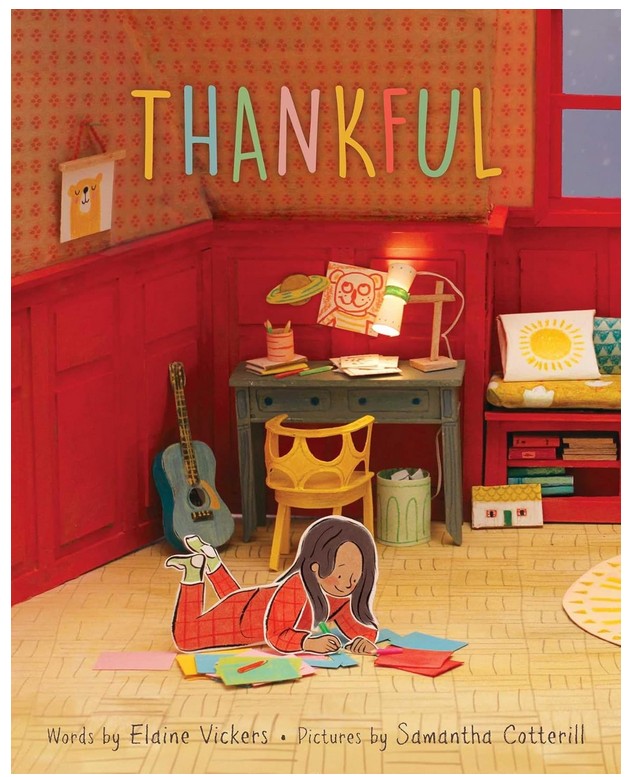
Thankful
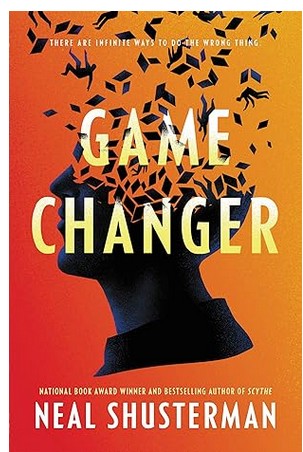
Game Changer
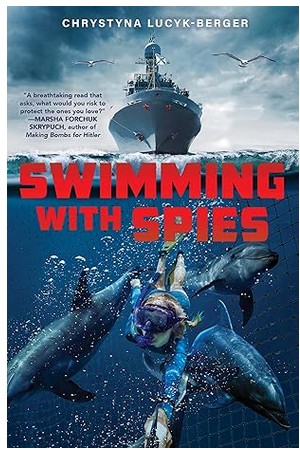
Swimming with Spies
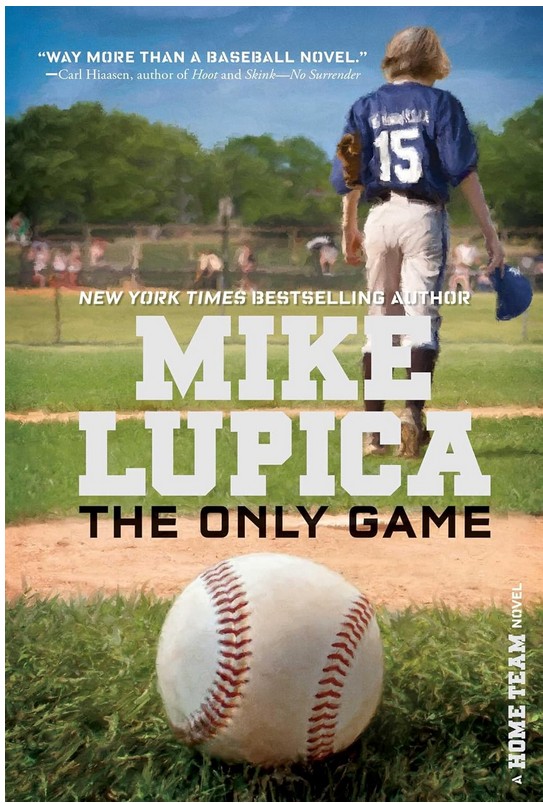
The Only Game
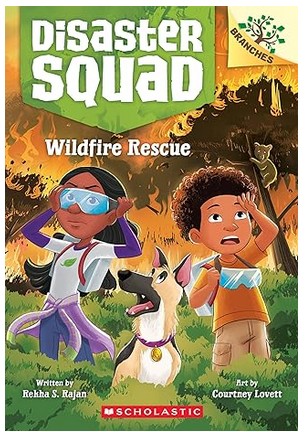
Wildfire Rescue


